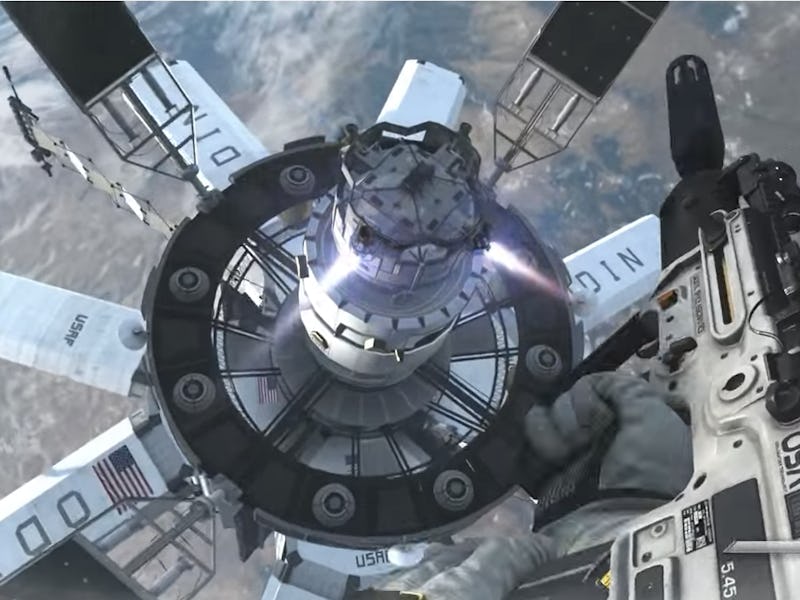Since Yuri Gagarin first orbited the Earth in 1961, world leaders have largely agreed that putting weapons in outer space won’t work out well for the human race as a whole. But as space becomes more and more accessible, and valuable, to private companies and foreign governments alike, the U.S. Air Force Space Command wants everyone to know that it’s ready for anything, including defending its assets with force.
On Tuesday, Major General David Thompson, the vice-commander of U.S.A.F. Space Command, told attendees at the Space Symposium in Colorado Springs that the country viewed space as a “joint war fighting domain, just like air, land, and sea,” and was prepared to do battle if U.S. assets were ever threatened.
“In no uncertain terms, space is a war fighting domain,” Thompson said, according to the department’s Twitter account. “Not because we want it to be but because adversaries are threatening peaceful use. Our strategic competitors are actively threatening our space capabilities and we must be ready.”
By strategic competitors, Thompson is probably referring to China and Russia, the only two space-faring nations that the U.S. has strained diplomatic and economic ties with. Thompson’s comments are jarring because since the establishment of the International Space Station in 1998, the public face of America’s space program, NASA, has lauded cooperation and collaboration with both Russia and China’s space agencies on the station. While we don’t necessarily like having to send our astronauts on Russia’s Soyuz capsules, the ISS is seen as separate from the diplomatic squabbles of the pale blue dot below it.
The military, however, isn’t paid to cooperate. In 1967, the U.S., Russia, China, and most of Europe signed the Outer Space Treaty, an international agreement to keep weapons of mass destruction — i.e. nukes — out of Earth’s orbit. While the Outer Space Treaty has thus far kept space a demilitarized zone, it does not prevent conventional weapons from being installed in orbit, nor does it mention the vast network of observational, mapping, and communications satellites that power modern militaries like America on the ground. It’s AFSPC’s job to keep those assets safe, despite the treaties — and it justified Thompson’s hard-nosed comments by noting that “not everyone signed” the Outer Space Treaty. (Russia and China are both parties to the treaty, and Iran was a signatory. North Korea joined the agreement by accession in Moscow in 2005, so we’re not entirely sure who Thompson is referring to here. Somalia?)
It’s far more likely that the AFSPC would have to deal with a threat to the military’s space infrastructure from either China or Russia. That threat probably wouldn’t come in the form of a space-based weapon, but rather an attack on the military’s aforementioned satellite network. The military relies on satellites for everything from missile detection (letting us know whenever the North Koreans decide to shoot something into the Sea of Japan) to GPS tracking and surveillance of foreign submarines on Earth.
Oh yeah, the mission launch posters for ULA's spy satellite launches are fuckin' SICK.
But in December of last year, Russia tested a missile specifically designed to shoot down a satellite in geosynchronous orbit. While it’s easy to take any sentence with “war fighting” in it as military bluster, General Thompson would be the person to listen to as a litmus test for how secure the U.S. military feels its satellite network is. In other words, if Thompson is puffing his chest out at the Space Symposium, he wants everyone to know: don’t mess with America in the big black battlefield upstairs.
